2024
Fred Close
Fred Close
October 1941 - 6 July 2-24
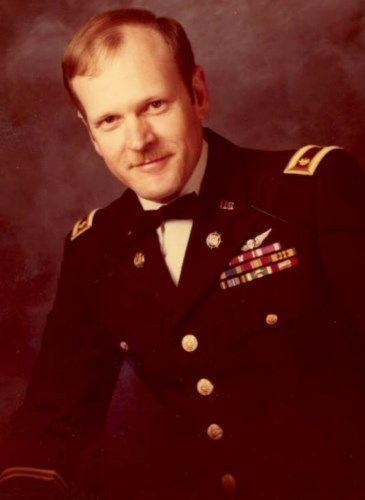
Fred Leland Close Jr 82, of Sierra Vista Arizona, passed away on July 6, 2024. Fred was born in October 1941 and adopted by Fred and Martha Close. When he was five, his mother noticed him filling water glasses in a row and playing music with their sounds. His parents bought him a piano and piano lessons. Fred continued to excel through the years and won a music scholarship to Arlington State College of the University of Texas with a double major in piano and percussion. He later changed his major to Business Administration (Accounting) and graduated 1966.
Vietnam came and Fred served with the 92nd Assault Helicopter Company. He served in the U.S. Army for 20 years as a helicopter pilot and comptroller and retired with the rank of Major. His awards and Decorations include Senior Army Aviator Badge, Bronze Star with Medal w/V Device, Meritorious Service Medal w/3d Oak Leaf Cluster, Army Commendation Medal, Vietnam Cross of Gallantry w/Palm, Vietnam Campaign Medal w/60 Device, Vietnam Service Medal w/4 Bronze Service Stars, Armed Forces Expeditionary Medal, National Defense Service Medal, Air Medal w/7th Award and the Army Service Ribbon.
After his tour in Vietnam, Fred graduated from the University of Alabama in 1974 with a Master of Arts degree in Accounting and then was assigned to South Korea. In 1976 he was assigned to Edgewood Arsenal in Edgewood Maryland where he met and married Irene Silagyi. He then served as the Executive Officer for the ROTC detachment at Rutgers the State University of New Jersey. In 1981 Fred was assigned to the 205th Transportation Battalion in Hanau, West Germany where he served as executive officer for the battalion and commander of B Company.
In 1986 Fred retired and the family moved to Sierra Vista, Arizona. Fred worked as a financial consultant and later taught business and economics at Cochise College.
After his second retirement, Fred returned to his first love, music, and joined the Sierra Vista Community Chorus as an accompanist, percussionist, and tenor. He was an active member of the Sierra Vista Community United Church of Christ (SVCUCC) serving in the choir as an accompanist and tenor. He served the church as moderator and treasurer and held many positions on boards and committees. He received the Kiwanis Hickson Award in 1999 and was voted Kiwanian of the Year 1990-1991 and 2004-2005. Fred was a Life Member of the Vietnam Veterans of America and the Vietnam Helicopter Pilots Association.
Fred loved God, his family, his country, flying, and music. He was a devoted son, husband, father, and friend. He is survived by his wife of 46 years, Irene, his daughter Stephanie and son-in-law Cody Donovan. A Celebration of Life for Fred with military honors will be held on Monday, August 19, 2024 at 10:00 A.M. at the Sierra Vista Community United Church of Christ, 240 N. Hwy 90 Bypass, just north of Target. In lieu of flowers, donations may be made to the SVCUCC Music Program or the charity of your choice.
2022
Jim Horton
Jimmy J. "Jim" Horton
7 December 2035(?) - 8 September 2022
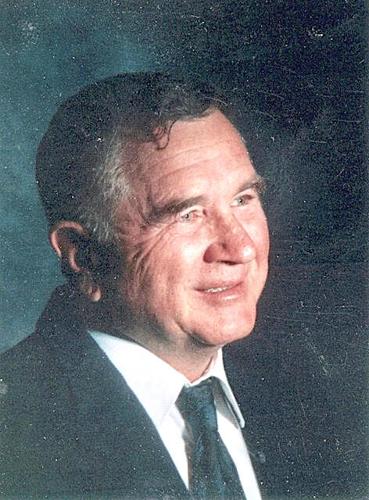
Jimmy J. Horton died September 8th at the Life Care Center where he was recovering from a leg broken in a fall precipitated by Lewy Body dementia/Parkinson’s.
Jim was born in San Angelo, Texas to Roy Horton and Rösa Nell Trumble. He enlisted in the Army shortly after his 18th birthday and married Dorothy Roberts, age 16, when he finished boot camp. They had two daughters. Mentors in the Army encouraged him to get his GED and before his retirement he was able to complete his BA.
During his Army Airborne career, Jim spent nearly six years as an instructor at Jump School. He was also an early participant in sport parachuting and had some very funny stories to tell. He had numerous overseas assignments including Norway, Iceland, Germany, two tours to Vietnam, and Korea mostly unaccompanied. While he spent 13 years enlisted he received a reserve commission between Vietnam tours and retired in 1974 as a captain.
After he retired he and his second wife, Karen Robinson, converted a VW combi into a camper. They spent 18 months traveling to the tip of South America and back. Here their love of bird watching was ignited. After living in Tennessee for couple of years they took a traveling job as managers of a traveling exhibit from the Museum of Science and Energy, traveling from coast to coast for nearly 4 years. This was followed by a 9 1/2 month trip to Australia-a birder’s paradise. They then lived in Baja Sur, Mexico for nearly six years. Settling in Sierra Vista in 1989 they made frequent “birding’ trips in the states and to Africa, Europe, Antarctica, the Arctic, Turkey, and Papua New Guinea Jim was president of the local Audubon and the state council and the founder of the San Pedro 100. They also were tour leaders and lecturers for Elderhostel for 11 years.
One of Jim’s grandsons described Jim as his hero-an adventurer, storyteller, a passionate defender of the environment who lived life fully and loved to share that with others. His niece said he was one of the coolest men she had ever known.
It was ironic that this wonderful, witty storyteller who was in demand as an MC or for roasting colleagues was almost totally unable to speak near the end of his life because of paralyzed vocal cords.
Jim was predeceased by his parents, his brothers Charles, Roy and Toby, his daughter Terre and his first wife, Dorothy. He is survived by his wife Karen, daughter Sherre (Greg), grandchildren Daron (Jennifer), Greg Jr. (Shannon), Morgan (Gary), 9 great grandchildren, 1 1/2 great, great grandchildren as well as nieces and nephews Tammy, Gene, Jim, Charla, Anthony and Tina.
2019
Grady Taylor
Lieutenant Colonel Grady E. Taylor, U.S. Army (Retired)
26 March 1936 - 8 December 2019
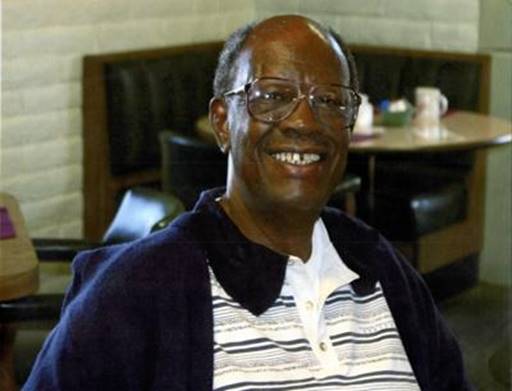
SIERRA VISTA—Lieutenant Colonel Grady E. Taylor (Retired) was born on March 26, 1936 to Rena Sims Taylor and Edward Taylor in Batesville, Arkansas. At an early age Grady’s intellectual giftedness was displayed academically and athletically. When he was in seventh grade, Mrs. Parker, a local judge’s wife, awarded him and other bright students a gold coin for their outstanding scholastic achievement. She told Grady, “I believe you will do great things”. Mrs. Parker’s words were the first of many inspirations in Grady’s life. He graduated from high school as valedictorian. During high school Grady had no match on the basketball court. His love for playing basketball continued as he chronologically matured. He loved to joke about giving his friends a “Nigerian Nightmare” (your lips will get to the hospital before the ambulance does). Although they admired his fitness and endurance, they were afraid of being elbowed and could not stop his 3 point shot.
After graduating from high school, Grady joined his mother in Des Moines, Iowa. He worked at the Hyperion Country Club until he was hired at the US Post Office. Grady met Shirlene Bell and found out that they had many things in common, especially dancing. Grady and Shirlene loved to dance. Their smooth skills were the envy of many at the Wilkie House, a local community center. They married in 1959 and had two girls, Michelle (Shelly) and Wendy Anne. Neither did Grady nor Shirlene know that their lives were about to be changed significantly.
Grady met the Honorable Judge Luther T. Glanton, a local prominent African American Judge who saw leadership potential in Grady. He encouraged Grady to join the Iowa National Guard. Grady was inspired by Judge Glanton and joined the Guard where he quickly learned how to navigate the unchartered waters of covert racism. He displayed endurance and successfully completed officer’s training school. Grady’s only fond memory of the Iowa National Guard was his life-long friendship with Attorney Lyle Simpson who witnessed the injustices directed toward Grady.
Grady was delayed a leadership role in the Guard until he received a call from the United States Army. He was requested as a Captain to go to Vietnam and accepted a prestigious assignment as staff writer for Admiral John S. McCain, Sr. Grady’s journey with the US Army landed him assignments in the United States, Europe, Central America and Asia. He held many leadership positions including Company Commander and North Atlantic Treaty Organization Deputy Chief of Staff in West Berlin and Brussels. Grady received a Bronze Medal and many other awards. Shirlene, who Grady referred to as the cream of the crop, and the girls accompanied Grady on many of his assignments. Wherever Grady was stationed, he exhibited a high standard of excellence and encouraged his staff to strive toward reaching their maximum potential.
One of Grady’s major achievements was writing the first Electronic Proving Ground (EPG) billion-dollar assessment (grant) for Fort Huachuca. He competed against five other bases for the grant and won. Grady was selected by Henry Kissinger to begin the EPG Center at Ft. Huachuca. For over forty years, the EPG grant has provided employment for over 660 employees and has infused millions of dollars annually into the Sierra Vista/Ft. Huachuca economies.
Grady endured many challenges but saw them as opportunities to grow. Major challenges included enduring racism, two tours in Vietnam resulting in post traumatic stress and the death of his beloved wife Shirlene of 37 years.
Grady was a strong proponent of education and loved learning. Although he received five degrees from various institutions (AA, BS, MA, MS and MBA), his love for the University of Arizona never waned. Grady was a member of the University of Arizona esteemed Alumni Association.
To whom much is given, much will be required (Luke 12:48). During his retirement years, Grady was active in the Sierra Vista community. For 18 years he served as a judge and recruiter for the Sulphur Springs Valley Electric Cooperative Science Fair. He also was a member of the NAACP, Computer Users Group, Southwestern Arizona Buffalo Soldiers and supported the Fort Huachuca Black Officers Restorative Project.
Lieutenant Colonel Grady E. Taylor went from labor to reward on December 8, 2019 at 3:20 a.m. at the Arizona State Veterans Soldiers Home in Tucson, Arizona. He was preceded in death by his parents, Rena and Edward Taylor; brother; aunt, Willie Davidson; cousin, Ruth McCoy and wife, Shirlene Bell Taylor.
Grady leaves to cherish his memory, children, Michelle Taylor Frazier (Steven) of Des Moines, Iowa and Wendy Anne Lowe of Covington, Georgia; grandchildren, Broderick Frazier (Nicole) of Des Moines, Iowa; Lieutenant Benjamin E. Frazier, West Liberty, Iowa; Alexander Lowe, Jeffrey Lowe and Dominique Lowe of Covington, Georgia; cousin, Helen McCoy Graham and family, East Lansing, Michigan; and sister-in-law, Sandra Bell, Ankeny, Iowa and numerous friends.
A Funeral will be held on December 12, 2019. The wake will be held from 9:30 a.m.-11:00 a.m. with the funeral at 11:00 a.m. at Hatfields Funeral Home, 830 AZ-92, Sierra Vista, Arizona 85635.
Military Burial on December 13, 2019 at 10:00 a.m. at the Southern Arizona Veterans Memorial Cemetery, 1300 S Buffalo Soldier Trail Sierra Vista, Arizona 85635.
Bob Bobar
Lieutenant Colonel Robert L. Bobar, U.S. Army (Retired)
1939 - 11 November 2019
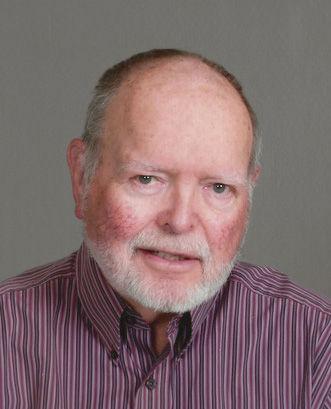
SIERRA VISTA—Bob Bobar passed peacefully on Monday, November 11 at home surrounded by his family.
Bob was born in Wellesley, Massachusetts in 1939. He graduated from Northeastern University with a degree in Accounting and was a member of the ROTC program. He began a military career in 1964 in the US Army that saw him serve in Vietnam, and included tours in Korea, Belgium at the Supreme Headquarters Allied Powers Europe, and Mannheim, Germany. After 24 years of service, he retired in 1988 at Fort Huachuca, Arizona, at the rank of Lieutenant Colonel.
Following his retirement, he attained his Masters in Public Administration and began a second career as a public servant. Over the next 16 years, he served as the Emergency Services Coordinator for Cochise County, working with the Cochise County Sheriff’s Department. During that span, he was responsible for initiating or driving dozens of critical county programs, including rural addressing for the County’s 911 emergency system, getting hazardous materials training for the county’s first responders, and establishing interagency training protocols. In 2005, he retired from public service.
Bob enjoyed reading, caring for animals, military and southwestern history, was actively engaged with Boy Scouts Troop 431 of Fort Huachuca, fishing, and travel (he never met a historical marker at which he didn’t stop).
Bob will be greatly missed by all. He is survived by his wife of 53 years: Janet Bobar; their two children: daughter Stefanie Bobar, Tempe (Scott Machtley); son Robert Bobar II, Seattle, Washington; and grandson Sylas.
A viewing will be held at Hatfield Funeral Home in Sierra Vista on Sunday, November 17, 2:00 p.m. to 5:00 p.m. A military committal ceremony will be held at the Southern Arizona Veteran’s Memorial Cemetery on Monday, November 18, at 12:00 p.m.
2018
Elmer Urda
Staff Sergeant Elmer Joseph Urda, U.S. Army (Retired)
2 September 1930 - 15 May 2018
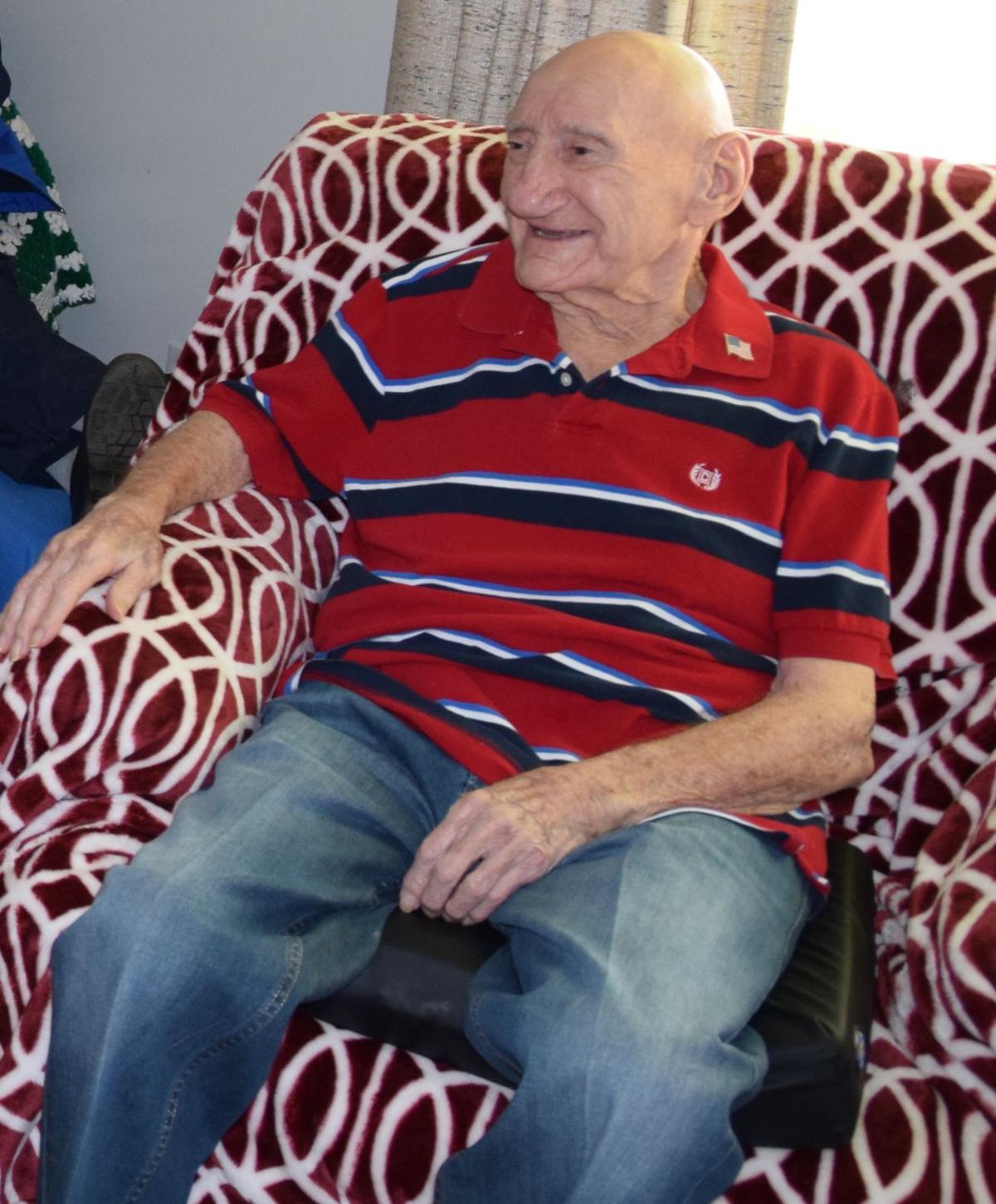
HUACHUCA CITY — The Sierra Vista area has lost one of its cherished members.
Family, friends and those whose lives were touched by Elmer Joseph Urda packed Hatfield Funeral Home on Saturday to honor and pay a final farewell to this deeply respected man.
A longtime Huachuca City resident known for his tireless volunteerism, community advocacy and as a dedicated family man, Urda died on May 15. He was 87.
In recognition of numerous lifetime accomplishments and a 22-year career in the U.S. Army, Urda was inducted into the Arizona Veterans Hall of Fame in 2007. He received full military honors at Saturday’s funeral service where his wife of 49 years, Frances Urda, was presented with the U.S. flag that had been draped over his casket. After “Taps” rang through the funeral hall, the flag was ceremoniously folded and presented to Frances in honor of her husband’s service.
Elmer’s passion and commitment to country, community and family stand out as qualities that defined his life.
Current Arizona Veterans Hall of Fame Society President Tom Hessler spoke during the service while presenting Frances with a hall-of-fame medallion and certificate of appreciation.
“He was admired, respected and his friendship enjoyed by many,” Hessler said. “Elmer will be missed, yet well-remembered for the love and caring spirit he shared with all.
“ … On behalf of all the recipients of the Arizona Veterans Hall of Fame Medallion and our Society, please accept this certificate as a symbol of our appreciation for Elmer Urda’s service to his community and the great state of Arizona.”
Don Churchfield, a representative from Disabled American Veterans also spoke briefly and presented Frances with a Bible.
Other speakers included Huachuca City Mayor Ken Taylor and Police Chief Jim Thies.
Taylor talked about Urda’s love for community and all people.
“He is a true hero,” the mayor said.
Both spoke of Urda’s “generous spirit,” compassion and desire to help others.
“Elmer was inspirational and instructional to me,” Thies said. “He was a great influence and helped me become the officer I am today … when he shook your hand, he brought you to a better place. God bless Frances and his family.”
Born in West Braddock, Pennsylvania, in 1930, Urda served in the Army from 1953 until he retired as a staff sergeant in 1975. His assignments included South Korea and Vietnam.
While in South Korea, he received a special commendation for helping citizens divert water during a drought.
After retiring from the military, Urda actively served his community and fellow veterans. He volunteered for the Huachuca City Fire Department, Planning and Zoning Commission, Senior Center and as a volunteer for the Huachuca City Police Department.
He was named as the first Huachuca City Citizen of the Year, an award that now bears his name.
In May 2016, a flagpole in front of the Huachuca City Community Center was dedicated in his honor and he and Frances were the first recipients of the Huachuca City Yard of the Month award in November 2016.
Elmer was involved in a number of veterans organizations, along with serving as a longtime volunteer for Tucson Veterans Affairs Medical Center.
“Elmer's love of people and his community have left us all with a better Huachuca City, Sierra Vista and Cochise County,” said Sierra Vista resident Tom Finnegan, a friend of Urda’s and another veterans hall-of-famer.
“He will be missed.”
2017
Bud Fulford
Solomon Seymore "Bud" Fulford
4 December 1930 - 13 July 2017
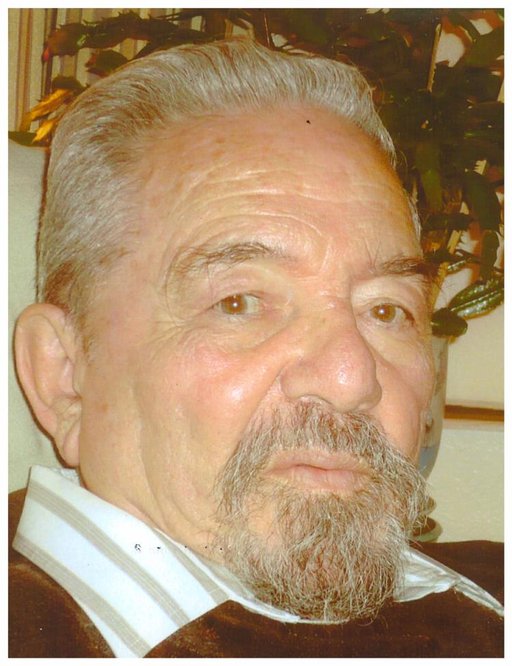
Solomon Seymore "Bud" Fulford, 86, died peacefully at his home on July 13, 2017.
Bud was born in Wawaka, Indiana, on Dec. 4, 1930. In 1947 he joined the US Army and began traveling the world. He was stationed in Okinawa during the Korean War, and also stationed in Germany, where he met and married on Feb. 2, 1957 his wife, Ingemarie Kohler. They made their home in Germany for two and a half years, then moved Ft. Monmouth, New Jersey.
Bud left the military in 1960 to earn a BS in electrical engineering from Tennessee Technological University. He joined the Army Reserves. He then worked for the Department of Defense as a civilian engineer for 21 years. During this time, he had jobs that took the family to Virginia, Ohio, Germany, Iran, Maryland, Colorado, and Arizona. Bud earned a master’s of science in telecommunications from Colorado University in Boulder. After retirement from the government, Bud worked for Boeing in Seattle, Washington, for contracting firms in Sierra Vista as well as teaching math and engineering for Chapman Community College.
Bud was very proud to have served in the Army and the Army Reserves. He was a “buy made in America” man his whole life, especially with cars. He had strong political opinions that he had no difficulty sharing. Tinkering with radios and TVs, breaking them apart and repairing them was a lifelong hobby.
Road trips throughout the United States and international trips were things Bud loved to do. He always wanted to see and explore new things. Bud enjoyed watching football, soccer and tennis on TV. He took a local Master Gardeners course due to his interest in gardening. This involved volunteering in town to answer any questions from other hopeful gardeners. He was very successful at growing weeds in his own personal garden. After full retirement in 1994 he and Ingemarie traveled numerous times to Canada, Germany, and once to China.
Bud became interested in computers and took every single course that Cochise Community College offered. He joined the local computer club, built dozens of computers that he loved to enhance, breakdown and build again. Online shopping for computer parts and just about anything that he could get a deal on was the highlight of his days.
Bud is survived by his wife of 60 years, Ingemarie; his three children, Alexandria Fulford, Diana Fulford, Bryan (Tina) Fulford; his two grandchildren, Hanna and Trenton Fulford; and family in Indiana. He is preceded in death by his mother, Ganetta Heltzel Fulford, his father Walter Fulford, and brothers Charles and Ted Fulford.
Service with military honors will be held at Sierra Evangelical Lutheran Church, 101 N. Lenzner Ave., on Monday, July 17, 2017 at 12:30 p.m. A private committal service for the family will take place at the Veterans Cemetery following the church service. There will be a reception directly after the church service in the Fellowship Hall.
2016
Larry Zetzman
Laurence Marvin "Larry" Zetzman
16 May 1934 - 21 June 2016
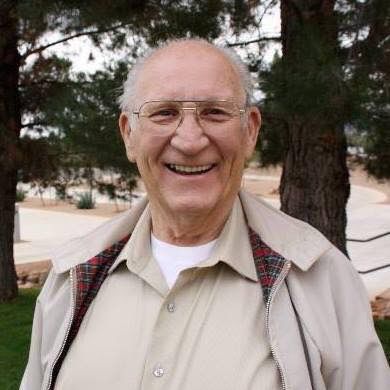
Laurence Marvin “Larry” Zetzman was born of Marvin and Eleanor Zetzman on May 16, 1934 in Eau Claire, Wis. He died June 21, 2016 at his home in Sierra Vista, Ariz., where he had lived since 2003.
He was a veteran of the Navy during the Korean War, and then married to Bonnie Jean Bourne for 53 years until her death in 2007.
They had eight children, four foster children and over 120 grandchildren and great-grandchildren who loved him dearly and often referred to him affectionately as “Grumpy”... from the time one of his grandchildren had trouble calling him “Grandpa.”
He pastored three churches in Oregon over 35 years. He is preceded in death by his wife, Bonnie, and his son, Charles David Flinchum. He married again to Marlene Luartes in 2013. He is survived by his wife, his sister Sally Sylvester of Malibu, Calif., and brothers John Zetzman of Naples, Fla., and Charles Zetzman of Cerritos, Calif., as well as his children and grandchildren.
He will long be remembered for his deep love of Jesus and for the many people he led to Christ.
A memorial service will be held at Mountain View Assembly of God Church, 102 North Colombo Avenue in Sierra Vista, Ariz., at 11 a.m. July 9.
One will also be held in Alsea, Ore., at the home of his oldest daughter on July 16. Prayers for the whole family are appreciated.
2008
Joe Cracchiolo
Joseph Umberto "Joe" Cracchiolo
24 June 1926 - 12 July 2008
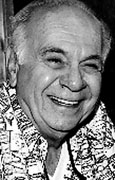
After a long life devoted to his family, friends and community, Joseph U. Cracchiolo, 82, of Tucson, Ariz., passed away Saturday, July 12, 2008. Born June 24, 1926, in Palermo, Italy, he was raised in Detroit, Mich., and moved to Tucson in 1941.
Joe attended the University of Arizona and went on to the University's law school graduating in 1949. He clerked for the Arizona Supreme Court's Justice Evo DeConcini before being drafted into the Army in 1950 during the Korean Conflict. Joe spent his time serving his country working for the Judge Advocate General Corps in Frankfurt, Germany. After leaving the army in 1953, his legal career took him into private practice and time serving the United States Bankruptcy Court, District of Arizona.
In 1969, Joe and his family moved to Sierra Vista, Ariz., where Joe took over the family business, Bella Vista Water Company and Bella Vista Ranches. He spent the next 20 years developing Sierra Vista into a thriving community. Joe’s commitment to education was reflected in his donation of hundreds of acres of land for Buena High School, the Cochise College Sierra Vista campus and the University of Arizona extension campus.
Joe is survived by his loving wife, Patricia; his five children, Carrie (Chris), Laura (Phil), Joe (Tracy), Tricia (Sam) and Liz (Alex); and seven beautiful grandchildren, Michelle, Alexandra, Nicholas, Megan, Julia, Simone and Sadie. He also leaves behind his brothers, Dan and Andy; sisters, Rose and Marianne; and many nieces and nephews.
Family and friends will honor his life on Saturday, July 19, 2008, at 9 a.m. at St. Thomas the Apostle Parish, 5150 N. Valley View Road. In lieu of flowers, donations in his name can be made to either St. Cyril of Alexandria Catholic School, 4725 E Pima St., Tucson AZ 85712; or Salpointe Catholic High School, 1545 E. Copper St., Tucson, AZ 85719.
2005
Bill Latta
Major General William Braden "Bill" Latta, U.S. Army (Retired)
25 October 1914 - 22 June 2005
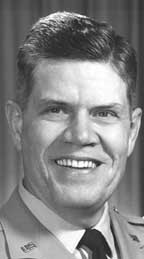
Another American patriot and public servant has joined the Long Grey Line. A bright young man, when he enlisted in the U. S. Army in 1933, he was assigned to tend the Signal Corps pigeons. When he retired nearly 40 years later, he had commanded the Army's worldwide, satellite based communications system.
Bill Latta was born in El Paso, Texas, on Oct. 25, 1914, and passed away at sunset on June 22, 2005, in Boise, Idaho. He was the only son of W. B. Latta, a pioneering Texas telegrapher and real estate developer, and Pansy Loomis Latta. His father died when he was quite young and he was raised by another stern Scot, William G. Davis.
Bill graduated from Los Angeles High School in 1932, where he did well academically and become the commander of the school's ROTC unit. The Depression, and the death of his stepfather, compelled returning to the family home in El Paso. There, he received a letter from Lt. Col. John J. Mudgett, his high school ROTC instructor. It told him Army enlistees with a high school degree could compete for appointments to West Point. A year after his enlistment at Fort Sam Houston, Texas, Pvt. Latta entered the U.S. Military Academy at West Point, N.Y. His class of 301 graduates, Class of 1938, was called "the last small, quality class."
When the U. S. Army was poised on the brink of World War II, the stage was not set. After he attended Wire School at Fort Monmouth, N.J., Lt. Latta was tasked to remain and create, from scratch, the U. S. Army Signal Corps Officer Candidate School. The Signal Corps OCS was the institution that grew the Signal Corps from its total of 289 men to more than 30,000 over the course of the war. It continued to train officers until the early 1990s when the School was moved to Fort Gordon, Ga.
Serving as the aide to Maj. Gen. Olmstead, the Army's chief signal officer, Bill asked visiting Brig. Gen. George S. Patton what he was doing. Patton replied, "Starting a tank battalion, want to come along?" With Gen. Olmstead's blessing, he went to work for Gen. Patton. A mere 11 months after Pearl Harbor, in November 1942, Operation Torch, the invasion of North Africa at Casablanca, the first dress rehearsal for D-Day, began America's role in the war in earnest.
Communications were hampered by the lack of radio trucks, which remained in the wells of ships standing off shore. Now Capt. Latta was ordered by Patton to get them. Commandeering an LST, he returned to the ships carrying the communications gear and convinced both ship's captains to stop what they were unloading and dig into the bowels of the ship to offload the radio trucks. Later that evening, a German U-boat snuck into the harbor and sunk both ships.
When Roosevelt and Churchill met at Casablanca, they stayed at a hotel previously occupied by the German Army. Anticipating its use by Allied forces, they left the hotel riddled with listening devices. The Signal Corps/Bill's solution: pull out every piece of wire found anywhere in the building and rewire the entire hotel for electricity and communications — in 3 days.
His second amphibious invasion was into Sicily in 1943. He had met a beautiful Army nurse, 2nd Lt. Beatrice Thompson, whom everyone knew as Tommie, who had also come ashore at Casablanca with the Ninth Evacuation Hospital. Together, they managed to overcome the Army bureaucracy and they were married in Palermo, Sicily, on May 21, 1944. Two months later, they shared their third invasion, this time into the south of France.
At the conclusion of the war, Col. Latta, signal officer for the XXI Corps, decided to remain for a career. The Army accommodated him by returning him his permanent rank of captain. He had made it back to major when he was assigned to Harvard Business School. He considered the B School to be his supreme intellectual challenge. In 1950, he was awarded an MBA, one of two given "with distinction." Additionally, he attended the Army's Command and General Staff School and the Industrial College of the Armed Forces. He put in substantial time at the Pentagon. It was a black day in his career when he signed the orders removing horses from the curriculum at West Point.
He had a nose for conflict. The Army got him to five of the seven continents; he was shot at on three. It started in Morocco, North Africa and continued into Sicily, France and Germany. When he was assigned to the island of Taiwan, the Chinese began to shell the off-shore islands of Quemoy and Matsu. When the Berlin Wall went up in 1961, he returned to 7th Army to prepare for the Soviet invasion of Europe. When assigned to NORAD, the Cuban Missile Crisis was his first order of business. When visiting South Vietnam on an inspection tour, he was shelled by the NVA.
He received his second star upon returning to Fort Monmouth, this time as the commanding general of the Army's Electronics Command. He was always proud of his boss, Gen. Besson's, selection criteria: "I'd rather have the SOB on my team than somebody else's." Under his guidance, the Army invented, developed and distributed for use in combat one of its most potent weapons, the night-vision technology that gave the Army the ability to see in the dark and revolutionized America's war-fighting tactics.
In 1969-1971, he was assigned to command the Army's communications system from Fort Huachuca, Ariz. His final assignment was as the chief of staff for the Central Nations Treaty Organization, based in Ankara, Turkey.
He said his vocation was the Army and his avocation was people. Tall, stern and, literally, commanding, warm and fuzzy he was not. Nonetheless, as the commander of major military installations, he saw his charge to be one of problem solver. In one of his many recognitions and awards, he was called "The Accomplisher." He understood the Army's role and effect on its surrounding communities as supportive and mutually beneficial, not confrontational. These beliefs resulted in substantial, positive economic and social benefits to the Army and the two large communities outside of his commands of Forts Monmouth and Huachuca; Monmouth County, N.J. and Cochise County, Ariz., respectively.
Gen. Latta was awarded the Army's Distinguished Service Medal for his work directing the placement of the electronic equipment that protects America from inside NORAD's Hardsite in Cheyenne Mountain, Colo. He was awarded the Legion of Merit on four separate occasions, beginning in World War II and ending at his retirement. He never regretted declining a Purple Heart, figuring getting hit by shrapnel from the Navy (ours) shouldn't count. He proudly wore the service ribbons showing the 46 months he was at war overseas at the start of his career.
Very early on, the general recognized the importance of two emerging technologies, transistors and the computer. Whether buying $20 million worth of transistors in 1953, when no Army equipment used them, or writing "A More Effective Army Through Electronic Data Processing" in 1957, the Army, what we now call Silicon Valley, are better off for his foresight.
He and his wife chose Sierra Vista, Ariz., the small town outside the gates of Fort Huachuca, as their place to build a unique home with the sweat and assistance of his sons and daughter. They lived there for almost 30 years. He was a lifelong supporter of education. He insisted on it for his children. Bill headed the Catalina (Arizona) Council of the Boy Scouts for five years and was awarded Scouting's Silver Beaver. He was active in community affairs in Sierra Vista for many years. He helped found, design and build his house of worship, Faith Presbyterian Church. He was an engineer and a builder. He was an accomplished photographer, a master gardener, an orchardist and even raised orchids indoors. He loved Coke and seafood. Using his beloved Macintosh computer, he ran Latta Engineering Services, delivering CAD drawings to local builders and architects, until he was 85 years old.
After commenting on the differences between the civilian leadership during World War II and Vietnam, he once wrote: "As I look back I was and remain impressed by the few professionals that we had, but even more by the citizens that turned into officers and soldiers in such a short time. The only common ingredient was the citizen soldier, he was and remains superb, he is courageous, innovative tenacious and bursting with initiative. Given good leadership, or even fair leadership, he learns very quickly and is the greatest."
West Point's motto is "Duty, Honor, Country." Bill lived his life under that standard and largely succeeded. He will be dearly missed by his family and friends.
Compelled by declining health, Bill moved to Boise to be near his son in 2002. At the 7th Annual All Service Academies Ball this past holiday season, he was honored by Gov. Kempthorne, Sen. Craig and the 200-plus attendees as the oldest living graduate of any of the academies, but especially his beloved West Point.
He resided at the Idaho State Veterans Home for the past three years. The family takes this opportunity to thank and praise the wonderful, attentive and kind staff of the Home for the fine care and support they provided in his final years. Dr. Cliff Tenley and the staff of St. Lukes Internal Medicine also are commended for their understanding and compassion.
Gen. Latta was a proud member of the Association of Graduates of West Point (Beat Navy!), a member of the Harvard Business School Alumni Association, the Military Officers of America Association, the Association of the United States Army, the Armed Forces Communications and Electronics Association, the National Defense Industry Association, the American Legion and a life member of the Veterans of Foreign Wars.
Gen. Latta was preceded in death by his parents and his three sisters. He is survived by his wife of 61 years, Beatrice T. Latta. He also is survived by his two attorney sons, Bill Jr. (Sheri) of Boise, and Bob (Jeanette) of Los Altos Hills, Calif.; his college professor daughter, Dr. Laura Gaudet of Chadron, Neb; a granddaughter, Christina Flanagan Latta of Boise and Moscow, Idaho; and three grandsons, Andrew, William and Thomas Latta of Los Altos Hills, Calif.
Hating funerals, he will be interred in a graveside ceremony, with full military honors, at the Southern Arizona Veterans Memorial Cemetery, Fort Huachuca, Ariz. The ceremonies will occur at 10 a.m. on Tuesday, June 28, 2005.
A reception for family and friends will follow at a location to be named at that time. No flowers, please.
Arrangements are by Summers Funeral Homes in Boise, Idaho, and Jensen's Sierra Vista Mortuary in Sierra Vista.








